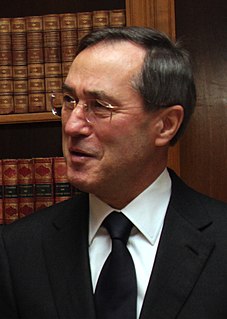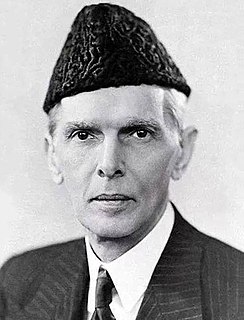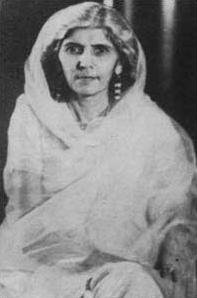A Quote by Theodore Roosevelt
Freemasonry teaches not merely temperance, fortitude, prudence, justice, brotherly love, relief, and truth, but liberty, equality, and fraternity, and it denounces ignorance, superstition, bigotry, lust tyranny and despotism.
Related Quotes
Freemasonry must stand upon the Rock of Truth, religion, political, social, and economic. Nothing is so worthy of its care as freedom in all its aspects. "Free" is the most vital part of Freemasonry. It means freedom of thought and expression, freedom of spiritual and religious ideals, freedom from oppression, freedom from ignorance, superstition, vice and bigotry, freedom to acquire and possess property, to go and come at pleasure, and to rise or fall according to will of ability.
It has been said that terror is the principle of despotic government. Does your government therefore resemble despotism? Yes, as the sword that gleams in the hands of the heroes of liberty resembles that with which the henchmen of tyranny are armed ... The government of the revolution is liberty's despotism against tyranny.
The French Revolution gave us three... powerful ideas, or concepts - liberty, equality and fraternity. But these ideas... are not only right in themselves, but they are so because they come in the proper order. You cannot have equality without liberty, and you certainly cannot have fraternity without equality. The importance of this I learnt from music, because music evolves in time, and therefore the order inevitably determines the content.
To seek the greatest good is to live well, and to live well is nothing other than to love God with the whole heart, the whole soul, and the whole mind: It is therefore obvious that this love must be kept whole and uncorrupt, that is temperance; it should not be overcome with difficulties, that is fortitude, it must not be subservient to anything else, that is justice; it must discriminate among things so as not to be deceived by falsity or fraud, that is prudence.
Souls were the same. They, too, had useless baggage that impeded their proper performance, these annoying, holier-than-thou bits dangling like an appendix waiting for infection. Faith and hope and love...prudence, temperance, justice, and fortitude...all this useless clutter just packed too much damn morality into the heart, getting in the way of the soul's innate desire for malignancy.
It is, let me say, at the very least by no means self-evident that there is more liberty, equality, and fraternity in the world today than there was one thousand years ago. One might arguably suggest that the opposite is true. I seek to paint no idyll of the worlds before historical capitalism. They were worlds of little liberty, little equality, and little fraternity. The only question is whether historical capitalism represented progress in these regards, or regression.
The movement of Pakistan which the Quaid-e-Azam launched was ethical in inspiration and ideological in content. The story of this movement is a story of the ideals of equality, fraternity and social and economic justice struggling against the forces of domination, exploitation, intolerance and tyranny.
































